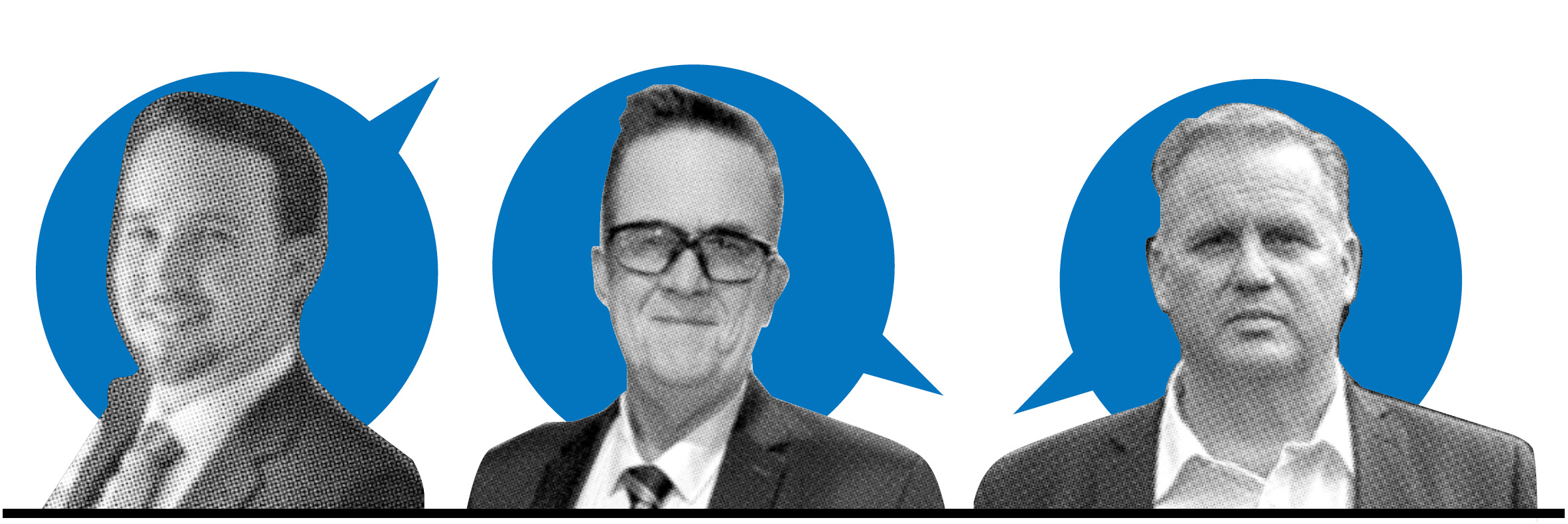

Voice Control
The battle lines over free speech — what it is, who has it, and whether it’s at risk — are being drawn, in a campaign driven by an unusual coalition of libertarians, academics who fear critical thinking is being lost, along with politicians and journalists who say they want to speak their mind and truth to power.
By Yvonne van Dongen
Auckland mayor Phil Goff was desperate to fire off a tweet. In July 2018, Alt-right Canadians Lauren Southern and Stefan Molyneux were booked to speak at a council-controlled venue run by Regional Facilities Auckland (RFA), and the prospect of hosting the two, known for their extreme-right views on everything from feminism and gender to immigration and Islam, so enraged Goff, he was busting to intervene.
Goff’s communications director Michael Burgess was all too aware of his boss’s impatience. On 6 July he texted the chief operating officer of RFA, Paul Brewer, that Goff “would love to push the button soon” and that “Mayor getting itchy Twitter fingers”. Brewer urged him to wait. “There are big legal issues at stake with big price tags if we get the wording wrong,” he replied via text to Burgess.
Goff didn’t wait, instead sending a tweet condemning the pair and stating “Lauren Southern and Stefan Molyneux will not be speaking at any Council venues”. The booking was duly cancelled due to “security concerns” around the “health and safety” of the presenters, staff and patrons.
The decision to block Southern and Molyneux from a council-owned forum was an education for many New Zealanders. Most had no idea who these people were, and didn’t know the authorities — in this case Auckland Council — could lawfully block them from speaking in a publicly owned venue. In many ways it was a primer on the debate about free speech.
The debate has roots in contemporary culture wars in the United States — a tussle often between conservatives, who want to keep the window of free speech as open as possible, and liberals, who want to protect what they see as vulnerable groups from speech they might find damaging.
That argument has increasingly arisen within institutions and academia in New Zealand. According to free-speech advocates, these organisations have not only failed in their duty to staff, who feel constrained in expressing opinions, but have also failed to defend the rigour of facts and science.
Their concerns, sharpened by Goff’s apparent edict, have helped spawn an organisation determined to defend the right to the free expression of views — even unpalatable ones — and to put itself at the heart of a fast-growing movement.
The evening Goff sent his tweet, in the Taxpayers Union (TU) office on Lambton Quay in Wellington, a group of colleagues enjoying after-work drinks vented their outrage at the temerity of the Auckland mayor deciding who they could or could not listen to in a publicly-owned venue. After all, it was Friday night and most of them were young enough not to have to worry about rushing home to children and responsibilities. The workplace, above the Local Government New Zealand office, is modest but the walls are triumphantly plastered with front-page stories the TU has featured in over the years.
The following day, it being a Wellington Saturday in winter, rain was bucketing down when one of the group returned to the office, texted his colleagues and asked if they would like to come in and “do a whiteboard session” on the issue. Four people turned up at 2pm and brainstormed furiously until the early hours of the following morning. They were back in the office at 9am on Sunday. By 10am Monday, they had opened a bank account and created a website. The Free Speech Coalition (FSC) was born.
The next hurdle was financial. The activists calculated they needed at least $50,000 to mount a legal challenge to the Southern-Molyneux cancellation. The driving force behind the campaign was Jordan Williams, the youthful director of the TU. Williams drew on his contacts, as well as the signatories to a letter circulated the previous year by 27 New Zealand luminaries from across the political spectrum.
Co-authored by Auckland University of Technology (AUT) history professor Paul Moon and University of Auckland academic Dr David Cumin, the letter detailed concerns about risks to academic freedom bubbling up in the United States, and warned that the same thing could happen here. Those putting their names to the letter came from left and the right. They included the titled (Sir Geoffrey Palmer, Dame Tariana Turia, Sir Toby Curtis, Dame Lesley Max, Sir Douglas Myers, Sir Michael Friedlander, Dame Jenny Gibbs, Sir Bob Jones), academics (professors Albert Wendt and Edwina Pio; associate professor Len Bell), media veterans (Dr Brian Edwards, Dr Gavin Ellis, Gordon McLauchlan) and other notables such as Dr Don Brash, Philip Temple, Alan Gibbs and Wally Hirsh. Their missive was emailed to media and politicians in April 2017.
The response to Williams’ appeal was overwhelmingly positive, but money was an issue until the campaign received a boost from Newstalk ZB host Leighton Smith, who ran the donation tally for the fledgling FSC like a telethon. Hourly updates recorded how much money the FSC had received. By midday on the Tuesday, it surpassed its target. Eventually it hauled in a war chest of $150,000 from more than 2000 donors.

“We should challenge abusive and vile speech, whatever side of the legal threshold it falls.” — Paul Hunt
Just three days after Goff’s tweets, Brewer’s worst fears were realised. The Free Speech Coalition announced its intention to mount a legal challenge. Nine days after that, it filed papers in the High Court.
Williams had already been involved in a start-up lobby group in helping establish the TU in 2015 at the age of 27, after turning his back on a career as a public lawyer. He was an early activist: he says he belonged to the Green Party and then Act while at high school. By 2018, he had more experience in the crowd-funding field but the success of launching the free-speech campaign stunned him. “It was incredible,” recalls Williams now. “It was bigger than any crowdfunding the Taxpayers Union had done at the time and bigger than anything I’d ever been involved in before.” Williams had been aligned to some small entities that caused big ripples politically: he was described in Nicky Hager’s Dirty Politics as an “enthusiastic helper” to Whale Oil blogger Cameron Slater when it came to dishing dirt.
Williams was adamant he didn’t want free speech to become a left-right issue, so he was pleased when figures generally of the left, such as political commentator Chris Trotter, came on board. The group drew from a broad church of supporters. David Cumin, the academic co-author of the original 2017 letter, who is active in the Jewish community, was involved from the start and is now on the Free Speech Union council (the FSC relaunched as the FSU in 2021). Moon was another early supporter, even though he finds the views of the Canadian duo abhorrent. He agrees it’s hard to argue for people who wear t-shirts emblazoned with “It’s okay to be white”. Though Moon has often been called controversial and doubtless worse for writing about Māori cannibalism, the shrunken-head trade and Māori child prostitution in colonial New Zealand, he has never had his free speech curtailed.
Also dismayed at the venue cancellation was the chair of the New Zealand Council for Civil Liberties (NZCCL), Thomas Beagle. He regarded the health and safety argument as “spurious”, though he did not say so publicly. With only 130 members and limited funds, Beagle says the voluntary organisation has to be selective about the issues it pursues, so he was pleased that the FSC was launched to fight this case and has since remained supportive of it, though the two organisations don’t always see eye-to-eye.
Although the FSC lost in both the High Court and Court of Appeal, the renamed group awaits the verdict of the Supreme Court on whether the Court of Appeal gave adequate weight to freedom of speech. As a union, it is now able to tackle issues in the workplace, such as employers censuring staff for saying things on social media outside their work time. For instance, when an aged-care employee working in a rural DHB made posts about Trump on her social media page, her employer tried to remove the worker’s licence.
Most of the organisation’s campaigns have been more successful than that first one has been so far. In June last year, it won two legal challenges on behalf of “gender-critical” group Speak Up For Women on the right to speak on public premises. The FSU has also orchestrated what it considers the most successful public-policy consultation ever run, mobilising opposition to the government’s proposed hate-speech laws. Of 18,000 submissions, more than 80 per cent endorsed the FSU’s submission. The proposed legislation has since been shelved for a rethink.
Perhaps more telling are the numbers supporting their cause — 1500 paid-up members and 70,000 supporters — and the amount of money they donate. Compare this to the 70-year-old NZCCL’s membership and funding, and it’s clear that whatever the FSU has done differently, it’s worked in recruiting members and money. Since 2021 the organisation has received enough cash from more than 4000 individual donors to fund two full-time staff in Wellington, as well as a communications specialist as needed. The average donation, FSU sources say, is $75 and fewer than 10 people have chipped in more than $1000. But five members and supporters are said to hold up to 10 per cent of newspaper and radio entity NZME’s shares, enabling them to meet with senior management to discuss issues of concern.
This year the FSU is on track to raise up to $400,000 from individual donations, an achievement so remarkable some find it suspicious — commentators have suggested the FSU is aligned with international far-right and libertarian causes, and its birth at the right-wing Taxpayers’ Union has not helped perceptions that it lists to conservative.
It’s the sort of accusation that makes the FSU’s 26-year-old chief executive, Jonathan Ayling, splutter with indignation. Perhaps splutter isn’t quite the right word. Even when Ayling is annoyed, he is astonishingly crisp and articulate, able to pack more words into a minute than most hyperventilating radio jocks. Ayling rejects the talk of far-right allegiances and defends the FSU as bipartisan, naming members as varied as left-wing political organiser and trade unionist Matt McCarten, former leader of the National party Judith Collins, and Act leader David Seymour.
Nevertheless, with council members like Williams, executive director of the TU, and with the Free Speech Union office now next door to the TU, it’s easy to see where the “right” tag comes from. Williams and Ayling insist the two organisations are distinct and separate in every way. Though I have only spoken to both men on the phone, they do share similar traits. Both are unusually courteous, precise and possessed of oodles of youthful enthusiasm. They remind me, probably unfairly, of Jehovah’s Witnesses.
Both fiercely defend the FSU as a non-partisan organisation with an ethnically and religiously diverse membership. Growing up in Mozambique, a nation under Communist rule from 1977 to 1994, Ayling says he saw first-hand what the legacy of a lack of free speech looked like. He came to New Zealand in 2013, studying international relations at Victoria University and finishing with a Masters in Theology from the University of Otago. Four years as an adviser to National MPs David Bennett and Simeon Brown followed before he was hired by the FSU to work on their hate-speech campaign in 2021. It is a cause Ayling believes in whole-heartedly. He wishes we all did.
“Free speech is such a radical idea that it has faced opposition in every generation. Ours is no exception,” he says. “Today we are in danger of losing this liberty because we have lost faith in the ability for good arguments to defeat bad arguments and for hateful speech to be undone by love.”
Put like that, the power of free speech can sound quasi-religious or at the very least, benign, a kind of neutralising agent or shield against evil. That would be to misunderstand its power. On this Ayling is unequivocal. “Free speech comes with risk. It can be harmful. Free speech does considerable harm in our society every day. It can be unkind, ignorant and inflammatory.”

